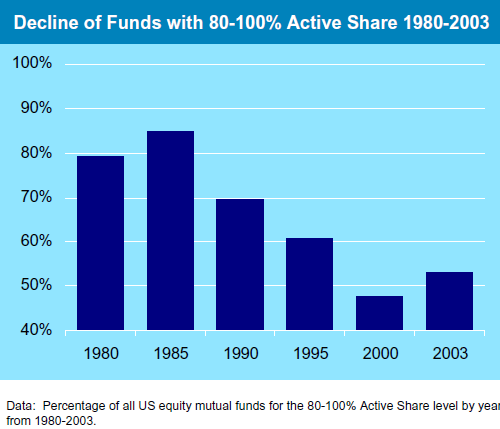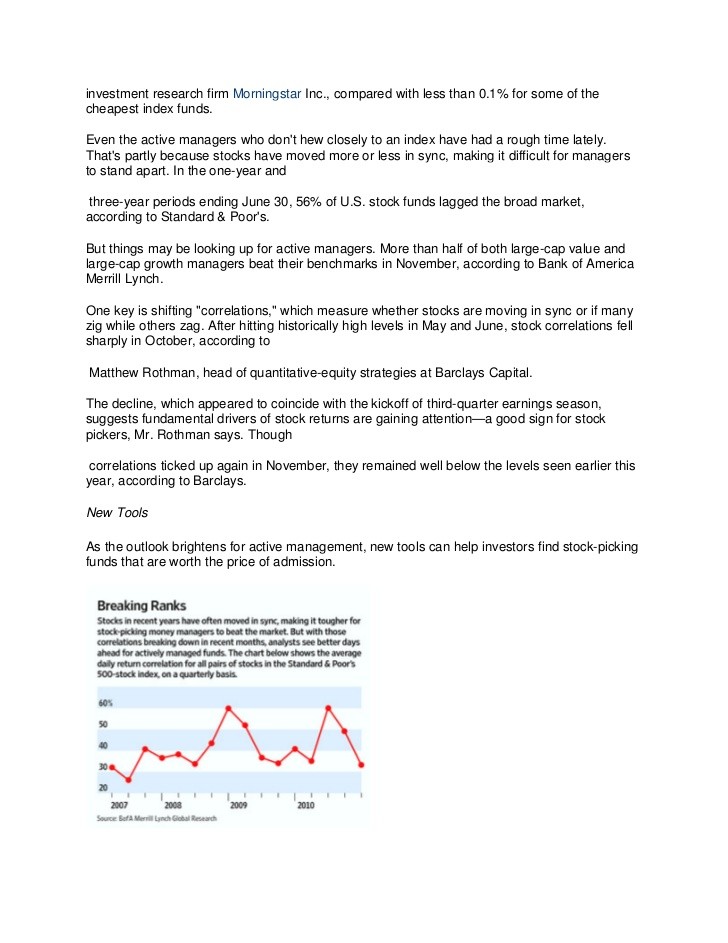Active Share What is it and why is it important to investors
Post on: 16 Март, 2015 No Comment

As an investor, you pay a fund manager to invest your hard-earned savings. You pay for their skill. But how can you measure that skill, and how do you know you’re getting value for the fees you pay?
When choosing a fund to invest in you have a number of choices. One of the most important is how active or passive you want the manager to be. This is likely to dictate the fees you pay. Generally speaking, the more active a manager is, the higher the fees. If you want a fund which simply tracks an index, you’re likely to pay low fees relative to others. If you want a manager who undertakes significant research and conducts what is referred to in the industry as ‘stock picking’ you’ll likely pay more. Why does this matter to you, the investor?
If you invest in a global active fund because you wish your returns to exceed that of a benchmark (eg. MSCI World Index) over the long term, you want to be as certain as you can that the extra fees you pay will be made up (and more) by the extra return the fund generates. If the ‘active’ manager has a low Active Share then they will closely track an index and your return will be close to the return on that index, minus the fees you pay to them. So you will pay for an active manager, but receive the services of a passive manager. This is not an optimal outcome for you or your savings. How can you seek to avoid this?
If you are seeking an active manager, look for a manager with a high “Active Share”. Active Share was introduced as a concept in 2006, by two Yale academics, Martin Crejmers and Antti Petajisto. It is a method of determining the extent of active management being employed by fund managers and a tool for finding those that outperform their benchmarks. The Active Share number essentially measures the extent to which the managers portfolio differs from a benchmark index.
Active Share is calculated by analysing the actual holdings of a managers portfolio and comparing those holdings to the benchmark index. By measuring active management in this way, investors gain a clearer understanding of what exactly a manager is doing to drive performance, rather than drawing conclusions from returns alone*.
In a recent article in the Financial Times. John Authers addressed the issue of ‘closet indexers’ and their impact on the funds management market in the United Kingdom. Closet indexing is “the practice of running an ‘active’ fund, charging active management fees but, in practice, offering an investment that merely hugs the index”. In an examination of £120 billion in UK funds under management, it was found that £1.86 billion in fees could have been saved by British investors. The variable used to measure whether or not a fund manager was active was Active Share. The researchers determined that those fund managers with an Active Share below 60% potentially fell into the category of ‘closet indexers’.

Numerous academic studies have demonstrated that funds with high Active Share and moderate tracking error deliver excess returns on average. Do all high Active Share managers generate higher returns than the benchmark? No, but it provides a strong indication of how active a manager is in trying to generate excess returns.
To ensure maximum value from exposure to capital markets, we recommend that investors should more actively (excuse the pun!) enquire about the Active Share of their fund manager. Elevation Capital Value Fund currently has an estimated Active Share of 97.2% when compared to iShares MSCI World Index ETF**.














